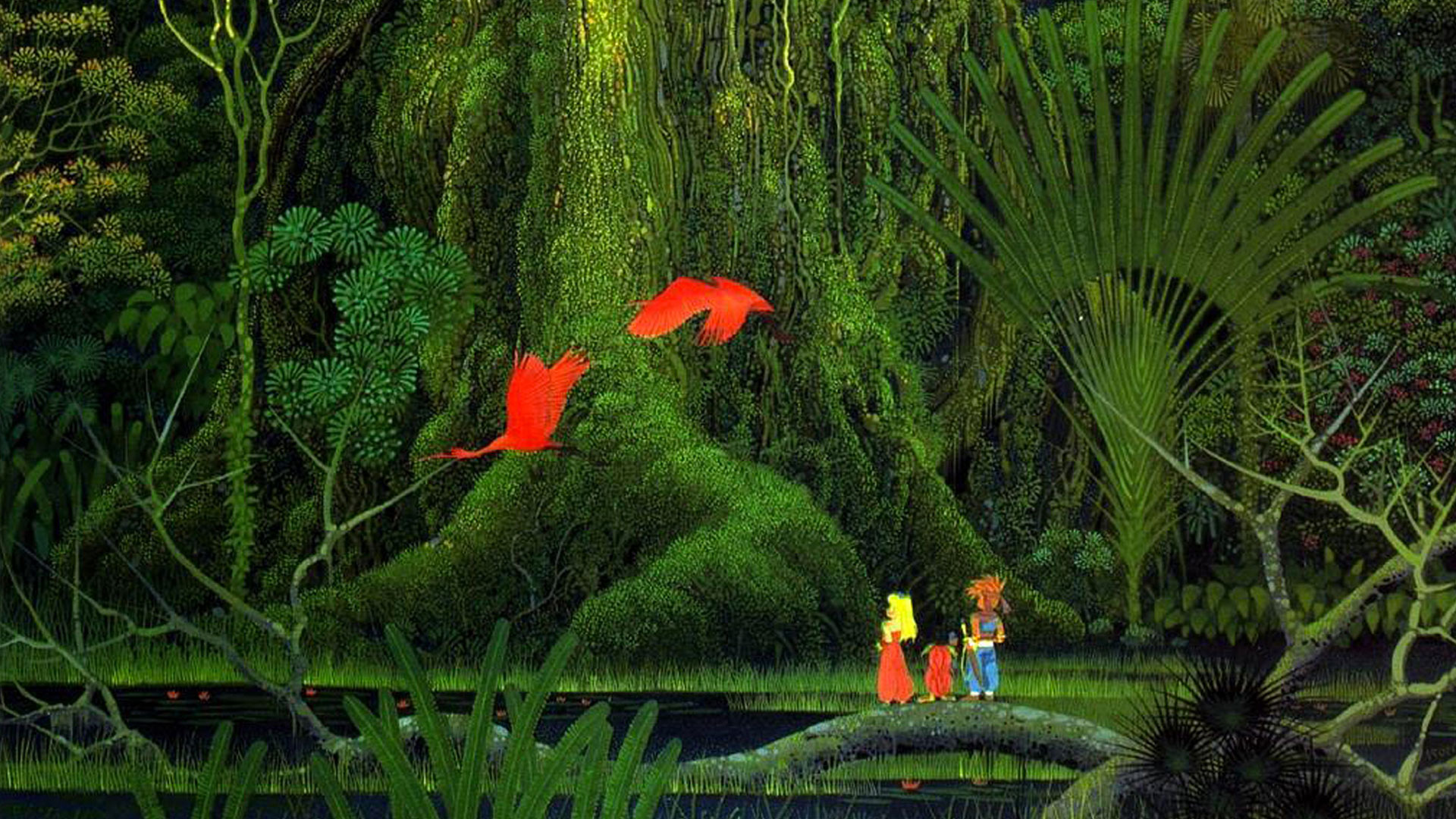Fear of the Heavens

Fear of the Heavens
February 28, 2021
Fear of the Heavens is the first thing you hear when you turn the game on. The tune itself is preceded by overlapping whale sounds, though they’re still part of the track. I always got the sense that these were distant sounds of mysterious beasts foreshadowing the danger of the wilderness. It’s certainly something that convinces us to play on. As the composer himself explains:
The beginning of the game shows the [Mana Tree] and the calm surrounding the landscape and this track tries to build on that calm. Much like the [Mana Tree] stands tall over everything on land, whales are also one of the biggest animals of the seas and towers over everything in the water. So I thought it was right to make the song of whales a proper representation of the [Mana Tree]. I wanted the song of whales to be almost like a crying voice for the undying [Mana Tree].”
Reddit AMA, February 23, 2014
Other than whale sounds, it has a cold opening with the theme leading the way. It’s in A Minor and performed at a slow walking pace. A high piano sound with pronounced reverb plays the melody over a string accompaniment.
The melody is virtually the same in this next section (:33), except it’s now played by a flute, with the piano providing accompaniment with arpeggios. There’s the curious addition of an electric bass which moves the piece to a soft rock feel.
Following the recap, the Fear literally blows up (:54) with a mass of notes on the piano over an intense orchestra. The bass guitar creates tension by reinforcing a series of pedal points. With chords in the treble changing over these bass notes, nothing resolves in this section, keeping the suspense. Finally, we arrive at the ending which is my favorite part, leading to a surprising C major seventh chord. There’s a brief arpeggio on the piano followed by a final A in all voices that to my ears, playfully overdoes the ending. I think Kikuta had a lot of fun with this track.
The remake does add an intro after some serious whale noises that have lost all subtlety. A few measures of wandering strings play (:09), before a small harp (:21) flourish brings us to a clearing. This is very brief since a high note takes us to lighter strings (:26), and the theme comes in on an embellished piano line. It’s played with some rubato against an orchestral part that’s far more intricate than on the SNES. The tempo is also a bit slower, making the theme more deliberate. Heavy counterpoint complements the melody with occasional visits from the harp. A flute comes in towards the end (:55) to play the line along with the piano.
The orchestra really goes nuts in the recap (not unexpectedly) with perhaps a bit too many voices clamoring for attention (1:03). The point is to embellish the first run through and it certainly succeeds in that. Instead of the flute peacefully closing out the line, the brass section takes over for the piano at the end (1:25). The “wild” section is now upon us, and it too has come far from the SNES version. The electric bass has been replaced by the orchestra—heavy percussion and low instruments now provide the lower line. It’s clearer how this section ties into the theme as portions of it are evident in the mix. The chimes and high strings are nice, but the latter gets a bit out of hand at the end of this section (1:55). Ending the piece is a very satisfying update to the original outro.
This version feels more like a cohesive grand theme. Kikuta obviously had to alter his approach due to the limits of the SNES hardware, but his vision is confirmed here.
As you can gather from the above, it’s a nice enough prelude to the game—a memorable, if simple melody followed by a musical adrenaline rush that gets you excited for the adventure.
I’ll close with some thoughts from the defunct Chudah’s Corner website:
Fear of the Heavens is a theme song like no other, sharing in its delicate simplicity a whispered silence telling the story of the world of Mana. Even though the piece does not delve into musical complexity of much depth, Mr. Kikuta manages to elude the well-practiced compositional algorithms staining the forefront of hundreds of main themes and introduces the listener to his own fresh new voice.”
Flute – Yamaha TG55
Strings – Yamaha PSLCD-104
Choir – Yamaha TG55/77/99
Piano – Akai S-Series CD-ROM 2
Fingered Bass – Roland U-220/LCDP-02
Cymbal Crashes – Yamaha TG55/77/99
Whale Sounds – OMI Universe of Sounds Vol. 1

